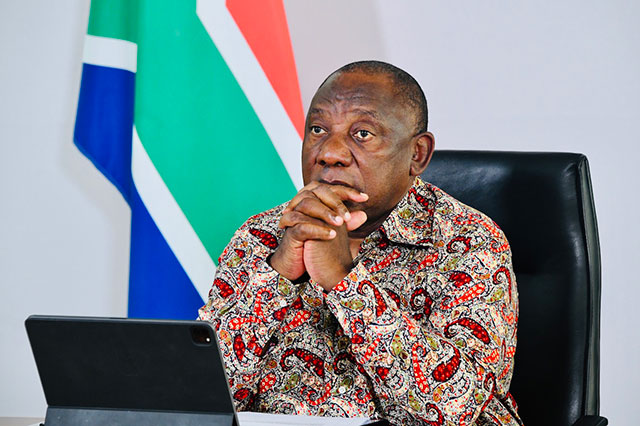Cape Town – President Cyril Ramaphosa has reiterated his administration’s commitment to Black Economic Empowerment (BEE), calling it a constitutional necessity rather than a policy option, amid growing economic pressures and increasing legal challenges to transformation policies.
In his weekly newsletter on Monday, Ramaphosa said South Africa must not backtrack on the progress made over the past three decades in redressing historical inequalities.
“Broad-based black economic empowerment is not just a policy choice but a constitutional imperative,” he wrote, urging the private sector to intensify efforts to create a more inclusive economy.
His remarks come as the country reflects on the 70th anniversary of the Freedom Charter, a foundational document in South Africa’s democratic struggle that envisioned a nation in which “the people shall share in the country’s wealth.”
We must dispense with the false notion that we must make a choice between growth and transformation. Economic growth without transformation entrenches exclusion, and transformation without growth is unsustainable.
🔗 https://t.co/2nkYoDbuOB pic.twitter.com/ySrTuUHNcH
— Cyril Ramaphosa 🇿🇦 (@CyrilRamaphosa) June 9, 2025
Despite measurable gains since 1994—including a 46% real income growth for black African households between 2006 and 2023, according to Statistics South Africa—Ramaphosa noted that white households still earn nearly five times more than black households on average. “This is the gulf we must close through deliberate and sustained efforts to expand opportunity,” he stated.
The president cautioned against the “false notion” that economic growth and transformation are mutually exclusive. “Economic growth without transformation entrenches exclusion, and transformation without growth is unsustainable,” he said.
Ramaphosa’s comments follow increasing scrutiny of BEE policies, including legal action from some quarters who argue that such measures undermine merit-based competition. The president rejected these criticisms, stating: “Transformation is not a favour. It is a necessity.”
To accelerate economic inclusion, Ramaphosa highlighted initiatives such as the Black Industrialists Programme and a planned Transformation Fund aimed at supporting emerging black-owned enterprises. He also called on private banks to reform their lending practices, which he said currently limit black entrepreneurs’ access to affordable finance.
ALSO READ | ‘They can’t even explain it!’ – Ramaphosa slams BEE critics
Additionally, the president said the Public Procurement Act should be used more effectively to benefit businesses owned by women, youth, and people with disabilities, and urged private companies to rethink their supply chains to broaden opportunities.
“As we develop our infrastructure, grow new industries like green hydrogen and electric vehicles, and drive localisation and reindustrialisation, we will continue to ensure that transformation is our guiding principle,” Ramaphosa wrote.
The president’s statement comes at a time of global uncertainty marked by what he termed a “poly-crisis” of geopolitical conflict, economic stagnation, environmental degradation and declining public trust in institutions.
Amid these challenges, Ramaphosa issued a call to action: “Let us move forward with greater urgency, unity and ambition, to build a South Africa where all can truly share in the country’s wealth.



